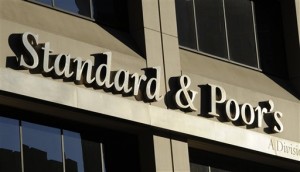President Aquino’s reform agenda is expected to survive the current controversy over its budget savings-funded stimulus package, with the recent court decision declaring it illegal seen more as a speed bump than a brick wall.
Amid allegations that the multibillion-peso disbursement acceleration program (DAP) served as Malacañang’s slush fund, rating firm Standard & Poor’s (S&P) said it remained confident that the current administration would continue to push for much-needed reforms.
The government’s to-do list to bring the country at par with its regional neighbors remains long, S&P said Monday, noting the need for measures to create more jobs to address the yawning gap between the rich and the poor.
“Whenever this kind of thing happens, it’s back to the drawing board for the administration,” S&P analyst Agost Benard said in a conference call Monday. “It’s up to the administration to reformulate a plan. They will try again,” he said.
He was referring to the Supreme Court’s recent decision striking down the DAP, a scheme devised by Budget Secretary Florencio Abad, to quicken the pace of state spending and drive economic growth.
S&P has credited the Aquino administration for pushing through with reforms that have allowed the domestic economy to outpace the rest of Southeast Asia in terms of economic growth. In 2013, S&P upgraded the Philippines to “investment grade” in recognition of the country’s improved performance.
Last May, S&P granted another upgrade, saying it was convinced that reforms in revenue-generation, transparency, governance and higher public investment would be at least sustained after President Aquino steps down in 2016.
“We formed a view that there has been sufficient improvement in what we call institutional and governance capacity in the Philippines,” Benard said.
With less than two years left in his term, President Aquino must focus on pushing further changes that would improve in more meaningful way the lives of Filipinos.
S&P said the Philippines’ main weakness was its economic structure and growth. “(The economy) is not growing fast enough compared to population growth,” Benard said.
He said the administration, with what time it has left, should pursue the liberalization of restricted industries in Congress. Improving the business climate should also be prioritized to attract additional investments.



